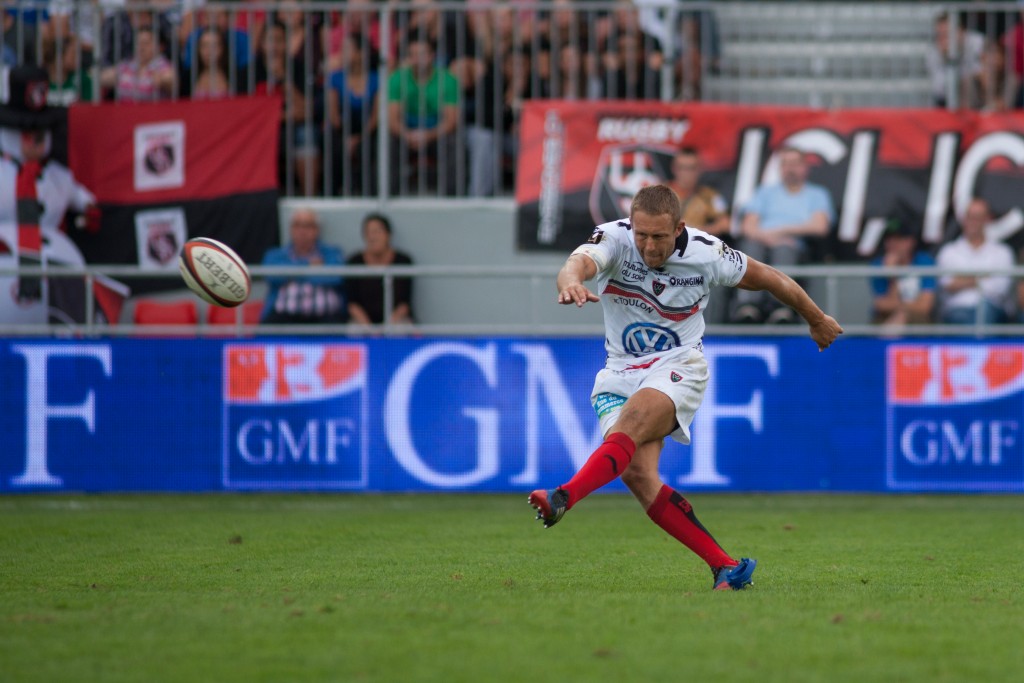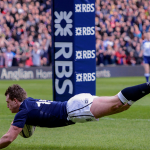Over the years, the game of football has evolved into a multi-million pound business where players and owners alike revel in celebrity lifestyles financed by six-figure pay checks. From a host of rich and famous club owners to big-time brand names dominating the front of strips; money has an undeniable presence in all aspects of the sport and many cynics claim that rugby is beginning to follow suit.
Initially based on the concept of amateurism, the game of rugby was played at an amateur level until 1967 at which point football was already a fully professional game. Since this point, it seems that football has always been one step ahead of rugby In terms of generating revenue. In financial terms, just how much further ahead is football to rugby and is this to the detriment of the integrity of the sport?
The principal of training home-grown talent is actively promoted in rugby with more opportunities given to academy graduates, albeit for modest salaries. In contrast, football clubs are willing to offer excessive pay checks to players that are able to offer more than raw talent in the way of celebrity status, as these players generate revenue for their team by simply being on the field.
This leads to the greatest financial discrepancy between the two sports which is undoubtedly the difference in players’ salaries. Up until his retirement at the end of the 2013-14 season, Jonny Wilkinson was the highest earning rugby player earning a weekly salary of £11,000. The financial variance between the salary of a rugby player and footballer is palpable when comparing Wilkinson’s pay check to that of Cristiano Ronaldo who earns almost 30 times more at a staggering £300,000 a week.
“Rugby. Why did I choose rugby? I could’ve been a half decent left back…”
Further to paying their players modest salaries, rugby clubs maintain that their expenditure does not exceed profit due to the implementation of a salary cap each year. This cap ensures that wages are decided in advance and cannot be exceeded, allowing club owners to put aside the money in order to cover them. In football, the absence of such a cap and the persuasive powers of agents and players alike have increased salary negotiations to outrageous amounts.
In terms of external income, the sale of TV rights contribute a mass of wealth to both sports. In a four-year deal worth £152 million, BT acquired the rights to show Aviva Premiership games from the 2013-14 season – one of the biggest broadcast deals in the history of rugby. However this was merely a drop in the ocean in comparison to the £1.7 billion Sky and Setanta paid in 2007 for 5 years of rights to show the Premier League.
In addition to this, both sports capitalise largely from sponsorship; such as the naming rights of stadiums and advertising space on the front of strips which are sold for hundreds of millions due to the colossal scale of reach that the brand will achieve. As the more global sport, football naturally attracts bigger sponsors who offer even bigger pay checks. In essence, the amount many football teams earn from sponsorship alone would enable them to play to an empty stadium and still generate a mass of wealth.
However, if you scratch beneath the surface of football, not all is as prosperous as it seems with collected debt across the premiership totalling to a staggering £3.3billion. Rugby league teams are in fact wealthier than their premiership football counterparts who borrow extortionate sums of money to buy their players and, for that reason, find themselves dipping in and out periods of administration.
I can’t help but think that somewhere along the line football’s culture of greed and immediacy has come at the expense of the integrity of the sport. For rugby players, playing at a professional level is reward enough and can often top being paid excessive wages to watch from the bench. Football is undoubtedly the winner when it comes to rolling in the money, however rugby has demonstrated the intangible wealth that can be gained through conserving the principle, sincerity and heart of the sport by resisting the gluttony of the footballer’s pay check and simply rolling in the mud.



















